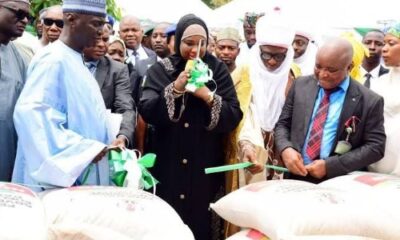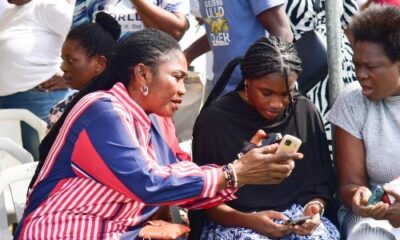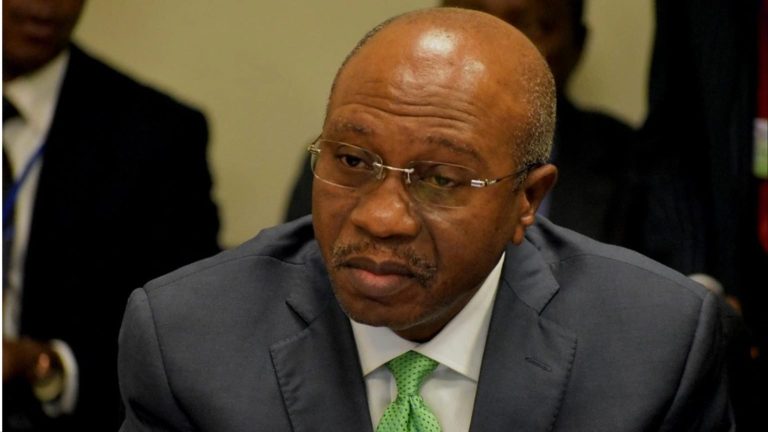The Federal Government has said it was working on what it described as Code of Practice for social media platforms in the country to put an end to the unbridled use of the platforms for unwholesome activities.
The Minister of Communications and Digital Economy, Prof. Isa Ali Pantami who spoke while playing host to a delegation of video-focused social networking service, TikTok, in his office in Abuja, stressed the need to entrench transparency, laws, and regulations in social media usage to ensure a safer digital space, devoid of illegalities and promoters of fake news.
“In Nigeria, people are using TikTok for so many things; some use it to promote rituals and domestic violence while others use it for hate speech; so, we cannot continue to have people put out random contents without appropriate checks/verifications,” Pantami said.
Represented by the Director-General, National Information Technology Development Agency (NITDA), Kashifu Inuwa, the minister raised several concerns bordering on security, tax payment, direct contact with TikTok, and general content hygiene.
“There is a need for you to be more transparent on what you do with the data, experience you take, and your algorithm design; because most algorithms are designed to promote hate speech,” he said, adding that technology can be used as a weapon or a tool which depends on the user’s intent.
He emphasized the fact that there should be consequences for anyone who uses social media to commit a crime and maintained that anything that is illegal offline should also be illegal online.
The minister who recalled the issues that ensued between the Federal Government and Twitter which led to the suspension of the platform’s operations in Nigeria said the microblogging and social networking service had to agree and meet certain conditions upon which its ban was lifted.
The conditions, he explained, are to be extended to other social media platforms, including TikTok.
“We are working on drafting “Code of Practice”, which we are going to share with you soon; get your feedback and see how we can make it better.”
Pantami was emphatic when he reiterated the need to direct contact with the company to agree on the timeline to either delete erring content or suspend accounts that violate rules.
He encouraged TikTok to register and have an office in the country to enable prompt communications for subsequent engagements.
Head of Government Relations and Public Policy, TikTok- Middle East, Turkey, Africa, and Pakistan, Farah Tukan, said the team intends to host a series of workshops in Abuja and Lagos with the aim of enlightening Nigerians on how the platform works; taking a deep dive into how contents are moderated; developed and how policies are enforced.
“We are committed to providing opportunities for Nigerians to earn a living through their creativity and expression, and as a global platform that thrives on creativity, it is essential that our users feel safe and comfortable online.
“Our user policies and tools are developed to promote a positive and safe environment for our community, and we trust that users will respect and utilize these measures to keep TikTok fun and welcoming for everyone,” Tukan who led the delegation said.
She confirmed TikTok’s readiness to explore more areas of collaboration with the agency to continue to contribute to keeping Nigerian users safe on its platform as well as promote the creative industries in Nigeria.
“We take misinformation and fake news very seriously, and it’s actually against our community guidelines; we have policies that address misinformation, we also have a system (the human elements as well) that looks into this issue as well,” she said.
The team leader also affirmed that the company is open to conversations with the government regarding updating its rules and regulations to ensure a more excellent user experience.
NITDA hopes that the engagement and subsequent ones will translate to having a safer digital space for every Nigerian, especially as TikTok has become one of the most preferred video-focused social networking services.

 BIG STORY21 hours ago
BIG STORY21 hours ago
 BIG STORY4 days ago
BIG STORY4 days ago
 BIG STORY3 days ago
BIG STORY3 days ago
 BIG STORY3 days ago
BIG STORY3 days ago
 BIG STORY2 days ago
BIG STORY2 days ago
 BIG STORY2 days ago
BIG STORY2 days ago
 BIG STORY3 days ago
BIG STORY3 days ago
 BIG STORY3 days ago
BIG STORY3 days ago
























